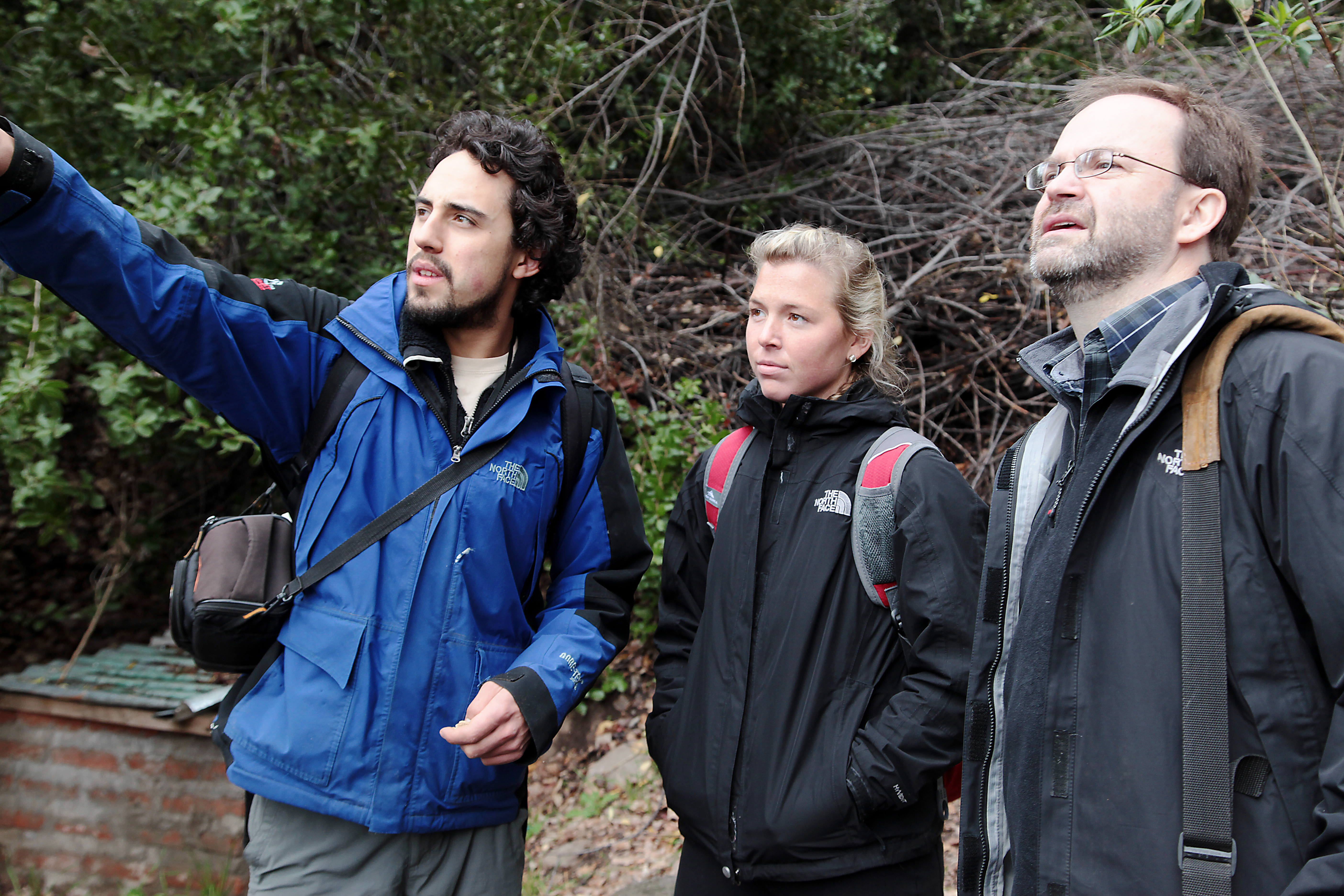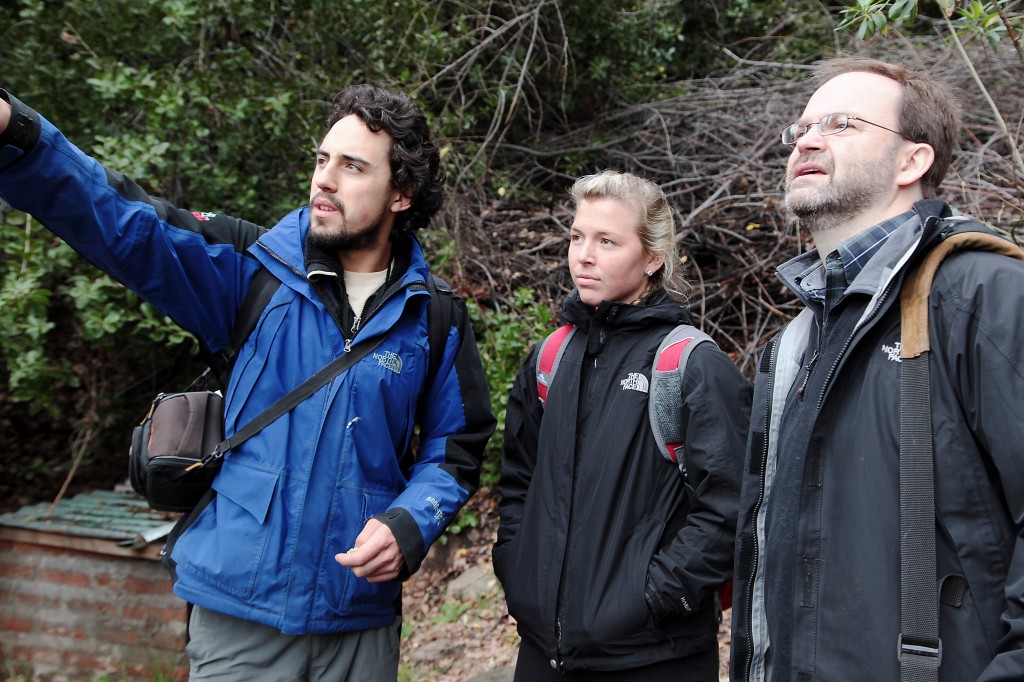MC students travels to Chile, aid environmental efforts
Last spring, I was shocked and elated to hear I had been recruited to accompany Dr. Scott Henson, associate professor of political science at Maryville College, on his latest trip to Chile to film a documentary and conduct environmental research. While we may have only been there six days, it was a non-stop venture of working hard and, well, working harder.
I, along with fellow MC students Hana Henry, Emily Julian and Susan Pogue, had been assembled for the team. Based on my previous J-term trip to Ghana, I knew we’d get to know each other well, whether we liked it or not. After the standard 10-hour flight, crying babies and seat kickers included, the clouds parted and a rocky, snow-covered land appeared below.
In Chile, the seasons are directly opposite from what they are in Tennessee; right about now, the flowers are blooming for spring, and when we arrived there in July, it was the middle of a cold winter. Our first stop was Santiago, which was a wonderful, European-esque city. This was a place with gorgeous architecture, terrifying taxi rides and even a riot or two.
Oh, and it didn’t help that almost nobody spoke English; I had to play the caveman talk game more than once. Our interpreter and guide was Francisca Astorga, the sweet, funloving daughter of Juan Pablo, our direct liaison to the project. While the city was full of fascinating sights and sounds, we really didn’t have too much time to take it all in. Right from the start, we attended meetings and lectures on the various environmental issues going on in the area.
Ecosystemas, the organization run by Pablo, played host to our team as we met with environmental experts from the area. Their organization is currently working on a project to prevent future damming projects in Patagonia, a vast, gorgeous area of subarctic wilderness, south of Chile.
After a brief visit to the sleek, stylish University of Chile, which could possibly be a host university for MC students in the future, we were off to the rural Biobio river region. A six-hour bus ride would usually be regarded as miserable, but the sights of the gorgeous countryside kept our interest. Our time here was both touching and somber, as we saw the awful effects that damming can have on people who live in certain areas.
A narrow, winding road led us into the heart of the Biobio river region, where we met a family of the native Mapuchi people that had been displaced by the damming companies. They hosted us for dinner and music, an incredibly generous gesture that truly touched all of us. This region had once been home to a great number of Mapuchi families that lived along a strong, flowing river.
After the damming companies forced them out of their homes, they flooded much of the region, leaving homes underwater and the river nearly stagnant. In return, they were given a cheap, unfair monetary compensation. It is now a haunting place, beautiful in its own way, yet tragic, considering all that was lost.
From there we began our journey bag towards Santiago, but not before spending a few days at the Maipo Valley. This place was incredibly gorgeous. We met more of Pablo’s family and went on an intense hike over a mountain in the Andes. Here we learned that another company had plans to irrigate the water supply of the valley’s river, one that supplies 85 percent of Santiago’s drinking water.
If this occurs, water prices will increase dramatically, and the damage to the environment and ecotourism could have a lasting impact. There are hopes that protests could stop the project, although the government has continuously sided with the damming companies, so prospects are fairly uncertain.
Still, despite all of the grim aspects of our trip, there was an underlying optimism. Chile is early in the damming process, and while certain losses have been tragic, future projects may be halted or eliminated just by spreading awareness. Our trip alone could make an impact: Henson’s documentary contains hours of footage, and both Julian and Pogue have been inspired to switch the focus of their senior theses to awareness related projects.
On Oct. 2, Pablo is traveling to MC to participate in a Community Conversations event where he will discuss conservation and answer any questions those interested may have. Footage from our trip will also be screened. Join us, and find out how you can help halt and eventually eliminate the damming of Chili.


